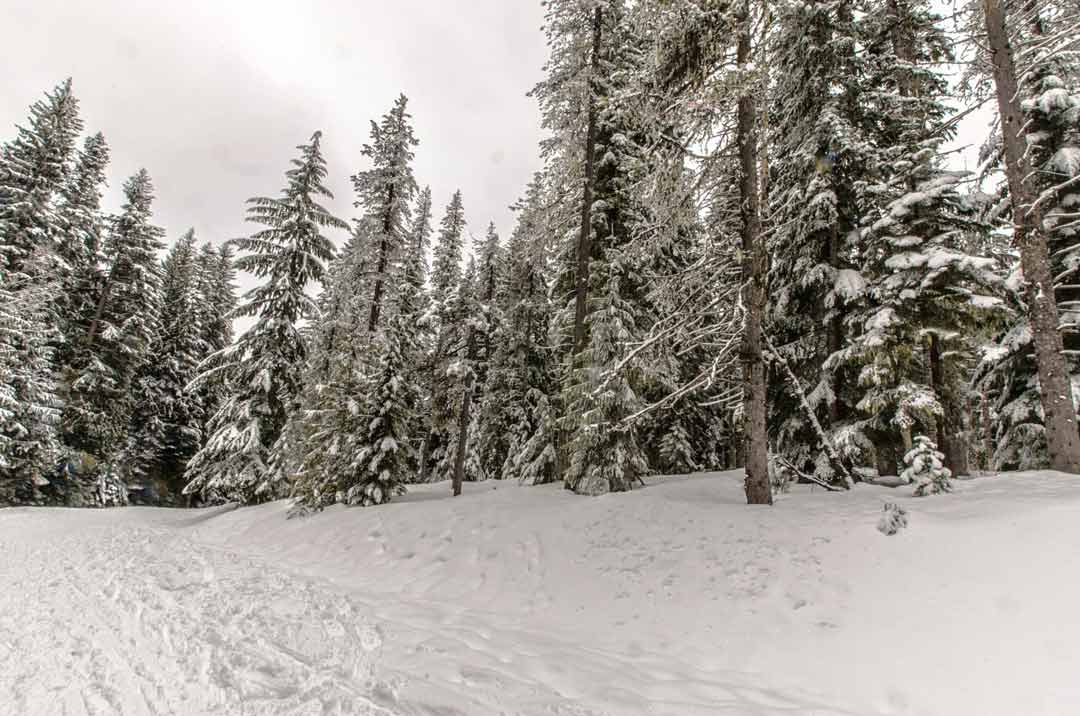Winter weather can be beautiful, as fresh snowfall quickly turns city streets into a wonderland. But for homeowners, winter can be stressful. Heavy snowfall can cause structural damage to a roof, block driveways, and lead to higher electricity bills when running the heater. For solar panel owners, there’s even more to worry about. Solar panels are usually evocative of bright, sunny days, so do solar panels work in the winter?
If you’re worried about your solar panels outputting enough electricity during winter, don’t fret. Technological innovations have made solar panels more efficient and hardy than ever — even if the weather outside is frightful.
[su_box title=”RELATED:” box_color=”#4AC1E0″ title_color=”#000000″]Solar 101: How Many Solar Panels Can I Fit On My Roof? [/su_box]
Do Solar Panels Work in Winter?
Yes, solar panels work in the winter. While the season’s overcast weather can affect your production, the idea that solar panels need hot weather to operate is incorrect. Solar panels generate electricity from sunlight rather than heat, so your panels will work just fine on clear days, even if it’s cold out. Cold weather can even help solar panels operate more efficiently, so you may notice increased production in some circumstances.
Why Do Solar Panels Work Better in the Cold?
Solar panels are constructed with layers of material, including silicon wafers that contain a lot of electrons. When the photons in sunlight hit the solar panels, those electrons move around much faster, creating energy inside the panels. That energy is converted into electricity, which can power your home after passing through an inverter.
In cold weather, the electrons inside the solar panels start with much less energy than in warm weather. When the photons start making them move from that state, the electrons generate more energy, which means they produce more electricity. You use that additional electricity as you need it, and the excess is either sent to your utility company via net metering or stored in a solar battery if you have one.
That’s a lot of information to unpack, so here’s the gist: Sunlight causes your panels to start creating energy. When it’s cold out, they can create more energy because of how the chemicals in the panel interact. Either way, you get a lower energy bill each month.
If you want to see how much you can save by going solar, take our 30-second survey.
Maximize Your Output During Winter
During the winter months, there’s a good chance you’re running the heater more and turning the lights on earlier. If you aren’t careful, you may use more electricity than you generate, resulting in your electricity bills inching back up. But a few simple tricks can help you avoid that scenario without shutting off your heater or lighting your home with candles.
Keep the Lights on With Solar Batteries
Solar batteries are an excellent addition to your solar system if you want to take full advantage of the electricity the sun produces throughout the day. With a solar battery, you’ll store the excess power your solar system generates rather than sending it back to the power grid via net metering. With the excess electricity stored in your system, you’ll pull from the battery rather than the electric grid. That’s especially helpful if your home is empty for a big chunk of the day, like when the family is at work and school.
Let Snow Clean Your Solar Panels
If you live in an area with heavy snowfall, there’s a good chance that you’ll wake up to a fluffy white pile covering your solar panels at some point. That’s not a problem — snow can make your panels less efficient in the short term, but melted snow can rinse dust and debris off panels. When the panel is clear, it’ll be more efficient.
Don’t worry too much about the snow buildup on top of panels, as the snow will likely melt faster than you think. You usually want to avoid clearing snow from your panels, too. The smooth surface of a solar panel will release snow all at once, causing a mini avalanche. That avalanche can put you in harm’s way, plus you risk damaging your panels if you clear them incorrectly.
Check With a Solar Installer to Learn More
The United States is massive, and your solar panel’s production capabilities will vary depending on your location. If you’re concerned about solar power output during the winter, it’s wise to contact a local solar installer to learn about production capabilities during the season.
Solar installers can use satellite imagery to approximate the sunlight your roof will receive throughout the year, helping them estimate how many solar panels you’ll need to power your home and offer personalized guidance on the care and maintenance of your system. At Purelight, we can help you determine the right solar panel solution for your needs. Contact us today, and we’ll help you get started.
[su_box title=”MORE:” box_color=”#4AC1E0″ title_color=”#000000″]Solar 101: Do Solar Panels Damage Roofs?[/su_box]





